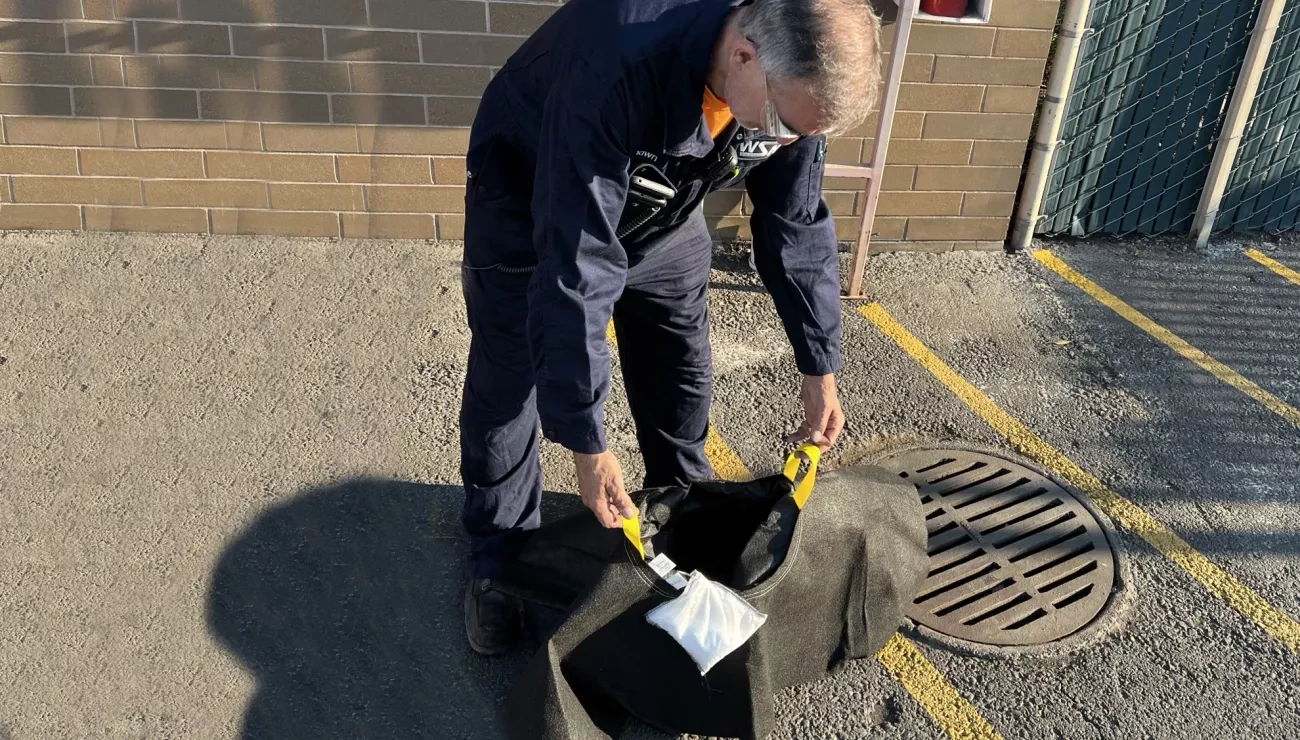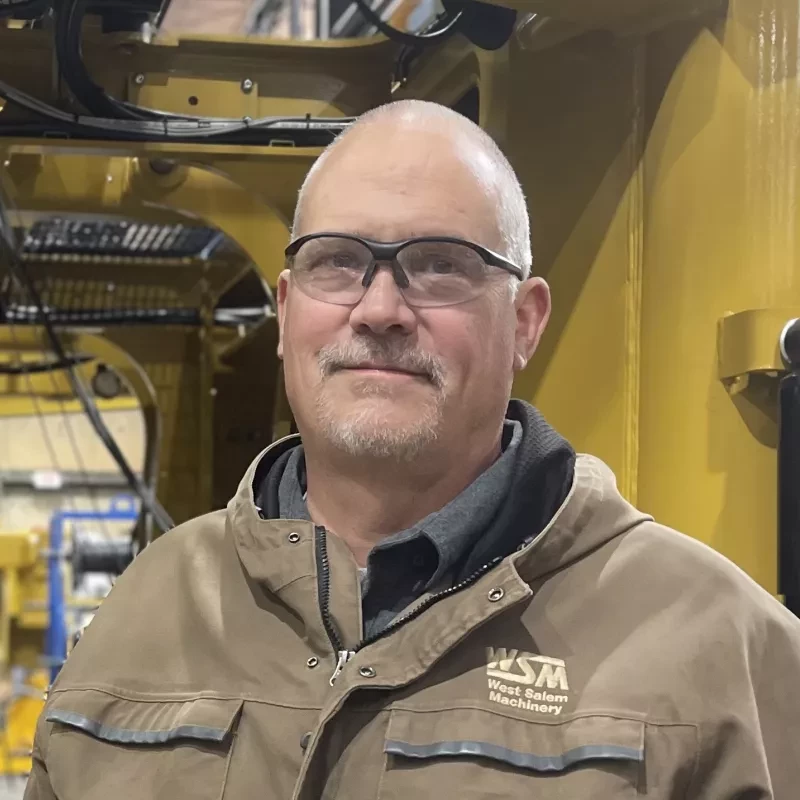
Storm-drain filters reduce potential water pollution at Bruks Siwertell’s WSM site
- Sustainability initiative
Sustainability goal: environmental
By 2030, Bruks Siwertell Group has a target to bring the amount of waste generated in its global business units to zero. Reducing the amount of waste, managing waste correctly and seeking circular solutions are important strategies in reducing the overall environmental impact of Bruks Siwertell Group’s business and are therefore priority sustainability areas.
Bruks Siwertell Group company, West Salem Machinery (WSM), is continuing waste reduction strategies within its office spaces, and maintenance and manufacturing facilities. In 2023, the Oregon-based engineering and manufacturing specialist announced the introduction of a battery-operated maintenance vehicle, replacing a fossil-fuel version. The forklift truck for manufacturing operations has also been replaced by an all-electric version.
Further to these, WSM is working to prevent contamination of the watercourse from its manufacturing facilities. The external working areas of WSM’s maintenance and production departments is a multi-use space, where run-off water from rainfall could potentially be contaminated with hydraulic oils from spills, sediment and other industrial chemicals.
Solution and results
A preventative strategy to mitigate the risk of water pollution has therefore been investigated, resulting in WSM maintenance personnel installing cone-shaped filters into each storm drain on the WSM site.
“These filters are known as ‘witches hats’, although they are inverted to sit within the drain,” explains Joel Rumrill, Chief Operating Officer, WSM. “They are made from a geotextile filter material that is purposely made to fit between the ground level grating and the drainpipe to help slow-down or stop the flow of undesirable materials from passing into the storm drain.
“For example, if a forklift developed a high-flow oil leak whilst working near a storm drain, the witches hat would filter the oil, and slow its movement, long enough for a person to react with placing absorbent materials around the spill site to stop the flow,” notes Rumrill.
This type of drain guard is frequently used on industrial sites and is engineered to filter stormwater waste, such as sand and oil, with most achieving a sediment filtration rate of around 80 percent.
“This is a relatively simple, cost-effective solution that is easy to install, and serves as a preventative measure to mitigate water pollution,” he adds. Although measurable results have not yet been recorded, WSM are confident that they are an effective solution for helping to reduce the environmental impact of equipment manufacture at the site.
Monitoring and assessing sustainability milestones and achievements
Bruks Siwertell Group’s sustainability goals are assessed from an environmental, social, and governance (ESG) perspective, with each initiative falling into one or more of these categories. This is to clarify how different initiatives impact our overall sustainability work, and how their results can be used to maximum effect. It also contributes to our commitment to transparency. All aspects of our sustainability work are designed to be educational, so that we increase our knowledge and adjust our ambitions accordingly.
PLEASE CONTACT US FOR MORE INFORMATION

Joel Rumrill
 Bruks-Siwertell
Bruks-Siwertell